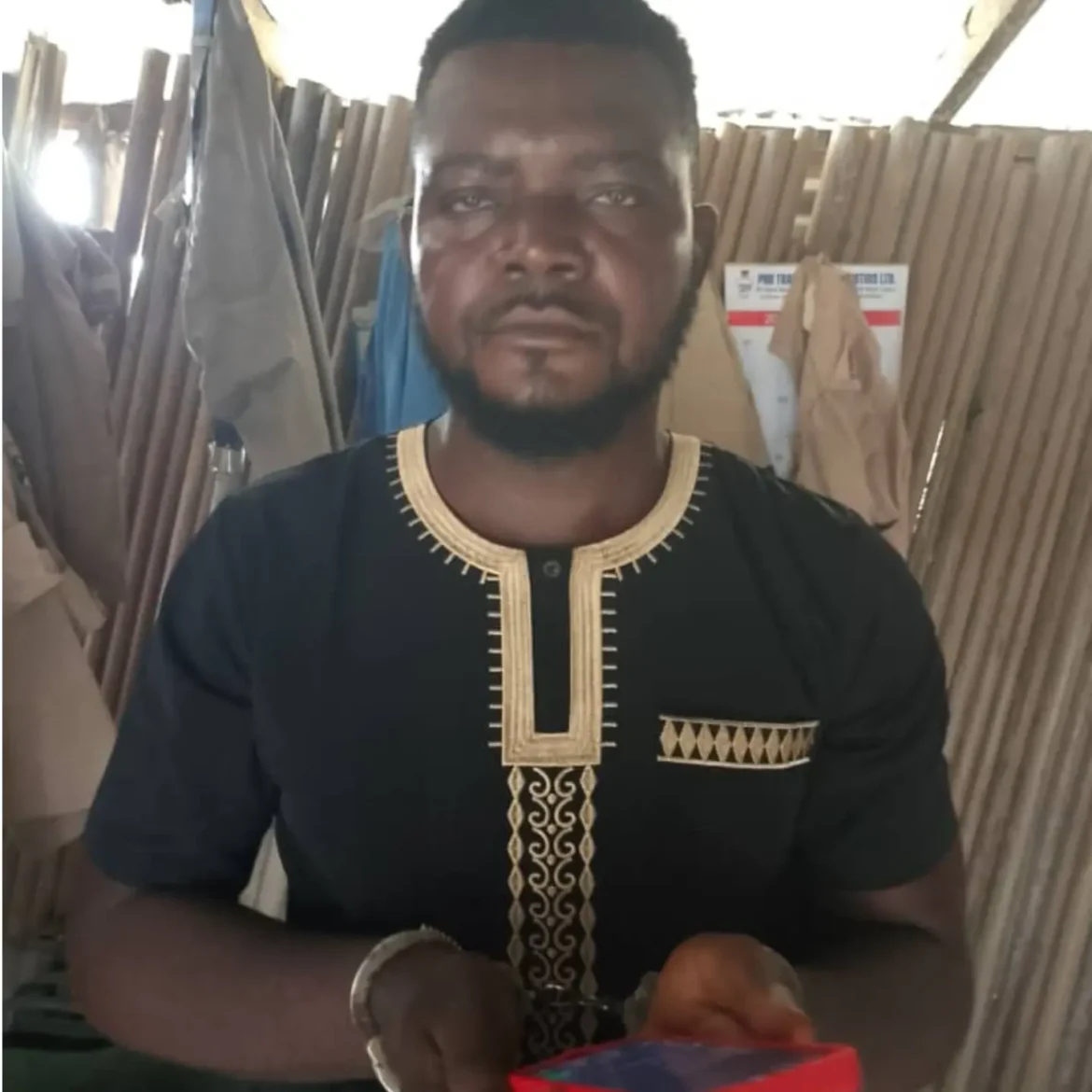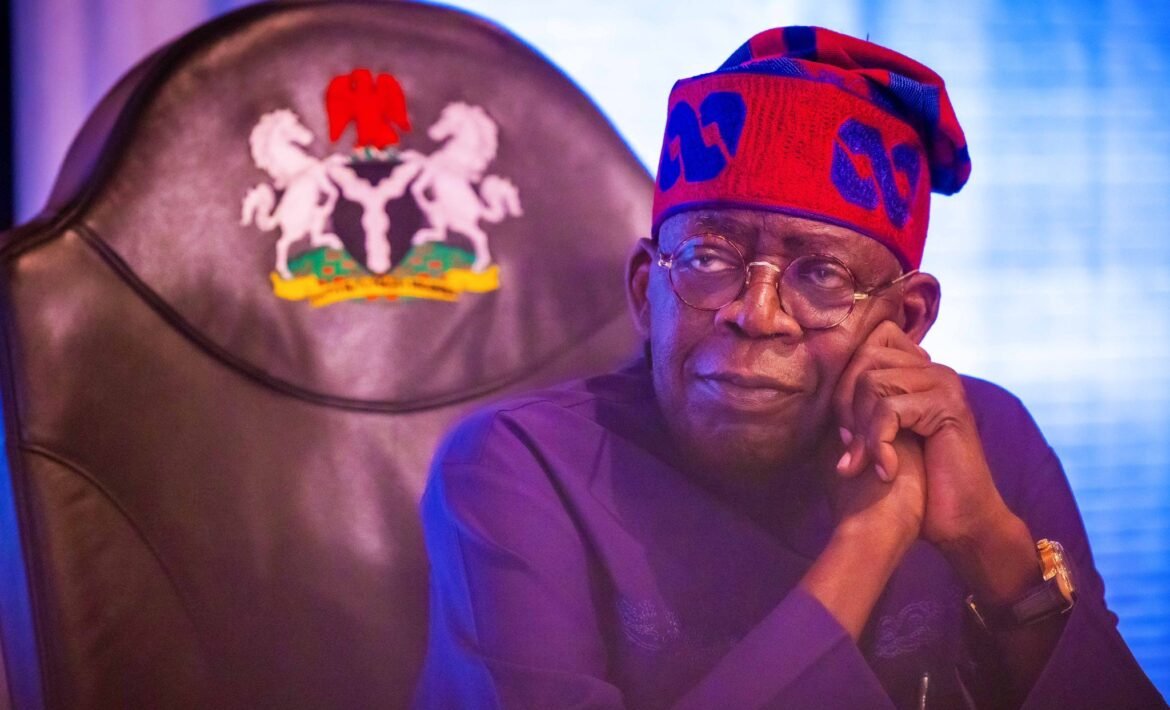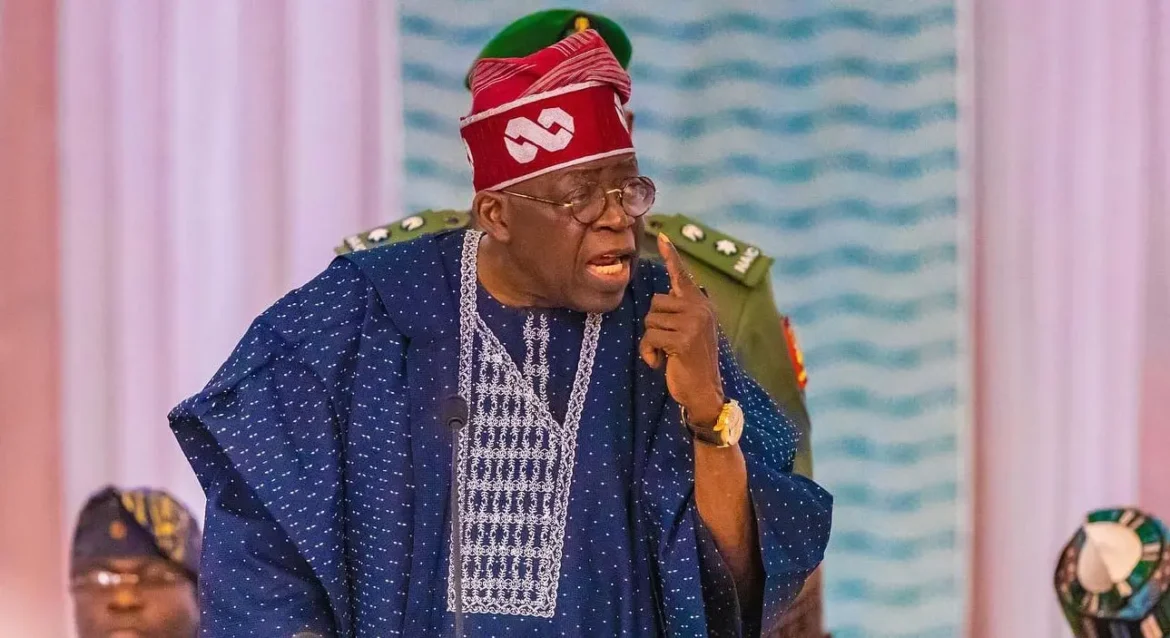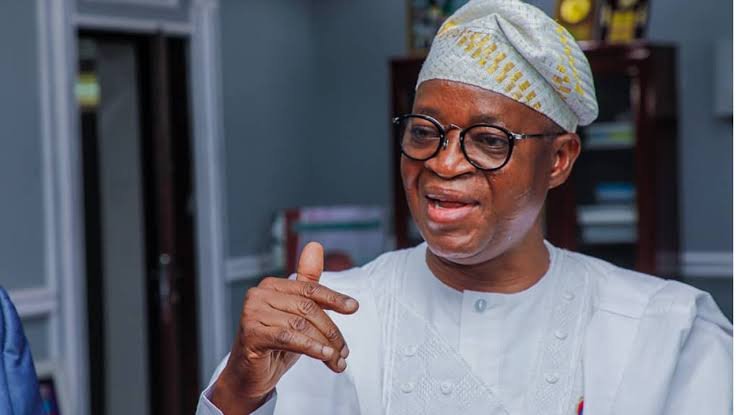President Bola Ahmed Tinubu has sent a message to the nation as his administration marks the halfway point of its four-year tenure.
In a statement on Thursday, May 29, 2025, the President reaffirmed his commitment to economic reform, national security, and inclusive development under the Renewed Hope Agenda.
He acknowledged the challenges that trailed the inception of his administration in 2023, while highlighting the policy decisions and reforms that have since reshaped the country’s fiscal and economic trajectory.
“Two years ago, you entrusted me with the sacred responsibility to lead our nation at a time of historic challenges,” Tinubu said. “The situation I inherited demanded urgent and courageous action.”
He justified the immediate removal of fuel subsidies and the unification of the foreign exchange market, calling both steps necessary to prevent economic collapse. “These measures were painful but essential,” he noted, citing runaway inflation, debt default, and a plunging naira as the likely alternative outcomes.
President Tinubu reported that inflation is beginning to ease, staple food prices like rice have dropped, and foreign investment in the oil and gas sector is rebounding—rising by over $8 billion this year. He pointed to a 400% increase in rig count since 2021 and said the government is meeting fiscal targets.
According to the President, Nigeria’s fiscal deficit dropped from 5.4% of GDP in 2023 to 3.0% in 2024, thanks to increased revenue and improved financial transparency. Ways and Means financing has been discontinued, and external reserves surged from $4 billion to over $23 billion within a year.
The administration has also cleared IMF obligations and significantly lowered the debt service-to-revenue ratio from nearly 100% in 2022 to under 40% by 2024.
Tinubu described the government’s tax reforms as one of its most significant achievements, raising the tax-to-GDP ratio from 10% to over 13.5% in just one year. He announced measures such as zero VAT on essential goods and services, tax waivers for key industries, and the establishment of a Tax Ombudsman to protect small businesses and vulnerable taxpayers.
He said the reforms led to over N6 trillion in additional state revenue in 2024, enabling subnational governments to meet salary obligations, reduce debts, and invest in infrastructure.
Tinubu stated that over 6,500 primary healthcare centres are being revitalised under the Renewed Hope Health Agenda. Cancer treatment centres, free dialysis programmes, and expanded maternal health initiatives are also in place. Health insurance coverage has grown from 16 million to 20 million in two years.
On education, the President cited increased access to quality learning through infrastructure investment and a student loan scheme for indigent students. He praised NASENI’s digital transformation and youth-focused innovation programmes like Innovate Naija and Irrigate Nigeria.
“These efforts are restoring dignity to work and creating a future of opportunity,” Tinubu declared.
The President listed extensive ongoing road and infrastructure projects across the country, including the Lagos-Calabar Coastal Highway, the Abuja-Kaduna-Zaria-Kano road, and the Second Niger Bridge access road.
He affirmed agriculture and food security as top priorities, noting massive investments in mechanised farming, tractors, and fertiliser distribution.
Acknowledging persistent threats to national security, President Tinubu commended the armed forces for reclaiming territories from bandits in the Northwest and rescuing kidnap victims.
“Our administration is committed to the security and safety of our people. Without it, the economy cannot thrive,” he said.
He announced plans for the upcoming Motherland Festival, a global cultural showcase aimed at boosting tourism and reconnecting with the Nigerian diaspora. New policies like diaspora bonds and a non-resident BVN have also been introduced to facilitate investment and engagement from abroad.












